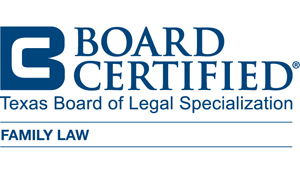Emily T. Ross - Child Custody Attorney San Antonio, TX
Dedicated, Practical and Effective Child Custody Attorney
Custody Lawyer Questions
★★★★★
Loren Woods 6/13/24
“I can not say enough wonderful things about Ms. Ross, Chelsey, and Ms. Bernal! If there were more stars, I’d give every possible one to this practice!If you are reading these reviews, you are probably considering what I was 2 years ago…Divorce. Hands down, my divorce was the lowest point in my life, and my main concern was the welfare of my 2 young children. You’re probably nervous about who you choose to represent you during this difficult time. Divorce can be expensive, so you want to make sure that you hire the right person in the beginning. You can stop attorney “shopping” now – choose Yusuf Ross Law PLLC, and you will not be disappointed! Ms. Ross and her staff guided me every step of the way and answered each of my questions very patiently during this whole process, and it felt as if I had the “A-Team” behind me the entire time! They became like an extended family for me during this whole process!
Ms. Ross, Chelsey, and Ms. Bernal are consummate professionals. Firstly, Ms. Ross’s resume is not lacking – Her education, training, and experiences (not to mention all of the accolades and awards she has received over the years) speak to her capabilities. She is creative problem-solver, her knowledge of law is impressive, and her analytical skills are exceptional. She thinks fast on her feet, and no small detail is missed with her! Secondly, their communication skills – They value educating their clients and keeping you as up to date as possible (even if that means that they don’t have any updates), and you will never complain about a lack of information or details. (They even send emails confirming that they have received your email!) Thirdly, their compassion, integrity and honesty – Ms. Ross will give you her honest opinion (even if it is one that you may not like), and all three ladies are women of character, reliability, and trustworthiness. They don’t sink to other people’s levels in the heat of the moment, and if they tell you they are going to do something, you can count on it that they will keep their promise. Lastly, organization – In this field, it is absolutely paramount to be able to collect information, organize it, and then keep track of it all. The old fashioned “paper-trail” and proof is of the utmost importance. Yusuf Ross Law PLLC’s organization is unlike anything I have ever seen before (and I am a type-A organized personality).
Short and sweet, I can say hands-down that they will work so incredibly hard for you and your children, and you will not regret having Yusuf Ross Law PLLC represent you. Much love to you, Ms. Ross, Chelsey, and Ms. Bernal! Thank you again for all that you did for the kids & I (and for all your clients)!”
Child Custody Attorney Protecting Your Rights
We also acknowledge that reaching a settlement is not always possible, and in those instances, you need the aggressive representation of a child custody attorney who understands how to effectively and confidently present your case to a Court to achieve the most desirable result.
No matter your specific situation, together we will explore your available options and determine the most effective course of action.
If you have questions about custody and want to know your options, contact our San Antonio, TX office at (210) 985-1230.
Real World Problems Need Real World Solutions
Our goal whenever possible is to obtain an amicable solution that promotes and maximizes your relationship with your child while taking into consideration your circumstances and needs, and with the understanding that the primary consideration in cases involving children should be protecting their best interest. We provide confident and compassionate representation for any issue that may arise during your divorce or custody case as it pertains to your child including:
- Conservatorship (Legal Custody)
- Possession and Access (Physical Custody AKA Visitation)
- Child and Medical Support
- Modification of Court Orders
- Enforcement of Court Orders
A custody order will contain a parenting plan that has provisions for a party’s legal rights and duties with respect to conservatorship, possession, and child and medical support.
Conservatorship, also known as Legal Custody
While generally most parents will be appointed JMCs, the Court can appoint one party as the sole managing conservator (or, sole decision maker), if the Court finds that appointing the parties JMCs will significantly impair the child’s emotional or physical well-being. For example, issues with substance abuse, domestic violence, or other harmful conduct affecting the child can limit a parent’s legal rights to and physical custody of his or her child.
Decision making rights with respect to the child can be allocated between the parents or caretakers in several ways, including:
Exclusively: one conservator decides to the exclusion of the other conservator;
Independently: each conservator can decide on their own with or without consulting with the other conservator; or
Jointly: the conservators must agree before making a decision; this may be accompanied by a tiebreaker contingency plan if they are unable to reach an agreement.
A court order will generally contain important legal decision-making rights, including, but not limited to, detailing who has the right to decide:
- Where the child primarily live;
- Where the child will go to school and other key educational decisions;
- Whether the child will undergo an invasive, non-emergency medical, dental, or surgical procedure; and
- Whether the child will undergo psychiatric or psychological care.
Fortunately, most custody cases are resolved by agreement without the parties having to go to Court. However, if the parties are unable to reach an agreed parenting plan, the Court will decide what is in the child’s best interest by looking to factors several factors, including:
- Which party has historically been the child’s primary caregiver?
- Which party is best able to meet the physical and emotional needs of the child now and in the future?
- Is either party a physical or emotional danger to the child?
- Which party has a more stable home environment?
- What are each party’s plans for the child to ensure the child’s physical, emotional, and educational needs are met?
- Which party is better able to coparent with the other party and reach shared decisions?
- Does either party demonstrate inappropriate parenting skills?
- Which party is better able to promote a relationship between the child and the other parent?
- Are there any other facts, acts, or omissions by a party that need to be considered when determining what is in the child’s best interest?
Your Attorney Should Have the Right Combination of Experience, Skills, and Compassion
Disputes over who will be the child’s primary caregiver often turns ugly when handled as a win or lose game rather than as a practical matter that must fit the realities of the family’s past, present, and future circumstances; improperly treating custody cases as a win or lose battle has a very real potential to cause long-term psychological and emotional harm to the child and the family dynamics. You need an attorney with the necessary experience, skills, and compassion to advocate for your interests while creating long-term, practical solutions which not only withstand these complex issues, but benefit you personally, emotionally, and financially.
Possession and Access (Physical Custody)
It is the public policy of the State of Texas to encourage frequent and continuing contact between the visiting parent and their child. Therefore, a parenting plan will also contain terms for physical possession (i.e., visitation) and may also address other forms of access, such as electronic or telephone communication. For children over the age of 3, a Standard Possession Order (SPO) sets out a visitation schedule for the noncustodial, (i.e., visiting) parent that Texas law presumes is in the child’s best interest. While the SPO is a highly common visitation schedule, your parenting plan may include a different schedule if the SPO is not in your child’s best interest or if the schedule is unworkable for some reason; for example, it doesn’t work with the noncustodial parent’s work schedule, living conditions, or other personal circumstances.
If it is not in the child’s best interest for a parent to have an SPO, orders can be crafted to address any specific concerns while promoting a child’s relationship with the noncustodial parent to the extent possible. For example, if the noncustodial parent has a drug problem, an order can give that parent regular supervised visitation for short periods during the day that progressively expand to an SPO so long as certain conditions are being met (the party is passing drug tests, attending therapy, etc.); if certain conditions are not met, their visits are again restricted. This is an example of another benefit of reaching an amicable solution with the other party; the parties can tailor creative visitation agreements that monitor the noncustodial parent’s sobriety and allow that parent the opportunity to be a healthy part of the child’s life, but also contains a contingency plan to avoid going back to Court in case of relapse.
Child and Medical Support
A parenting plan will also very likely contain provisions for support of the child, including ordering a party (typically, the noncustodial parent) to make lump sum regular child support payments and either provide health and dental insurance coverage for the child or reimburse the other parent for insurance premium payments. Although less common, a court order may also contain provisions for other support payments on behalf of the child, such as payment of school or extracurricular expenses. Because courts often heavily defer to Texas law that establishes guidelines for the payment of child and medical support, payments for expenses like schooling or extracurricular activities are more often made by agreement of the parties
Modification of Court Orders
The terms of an order addressing custody, visitation, or child support may need to be changed from time to time if there has been a material and substantial change in the circumstances since the last order of a parent, child, or other affected party that renders the current order no longer workable. Additionally, guideline child support calculations are subject to be reviewed and modified every 3 years if the monthly amount of support differs by either 20% or $100 from the amount that would be awarded under the current child support guidelines.
Change in Terms of Custody or Visitation
The Court’s primary focus when deciding for or against a change in terms of custody or visitation is the best interest of and stability for the child. Courts have found there to be a material and substantial change in circumstances when presented with evidence of changes in the child’s home environment, age, or needs, or changes in the circumstances of a parent or other conservator, including evidence of abuse or neglect or incarceration of a parent. A parent’s desire to move out of the area zoned in their court order as the geographic restriction can also be considered a material and substantial change if it can be shown that the relocation is in the child’s best interest. As relocations are generally disfavored, it is important to have a zealous child custody attorney on your side who understands what factors are considered by the court when deciding whether to grant the relocation request and how to effectively present your case.
Enforcement of Court Orders
Once you have your Court order, each party is required to comply with its terms; a party may be entitled to seek enforcement against the party who is not meeting their obligations under the order. Common enforcement issues involve failure to pay child support, failure to release the child for the visitation, or failure of a party to turn over property after a divorce. If you feel that the other party is not complying with the terms of the Court order or if you have been accused of violating the order, retaining an attorney as soon as possible will put you in the best position to successfully prepare to prosecute an enforcement or defend against any alleged violation. You may also be entitled to seek attorney’s fees in connection with prosecuting or defending against an enforcement action.
Child Custody Attorney – Let Us Help
Looking for a child custody attorney solution that makes sense and fits the needs of you and your child? Turn to our San Antonio, TX Custody and Family Law Firm for help. Speak to us at (210) 985-1230 or fill out our online contact form to book an appointment today!










